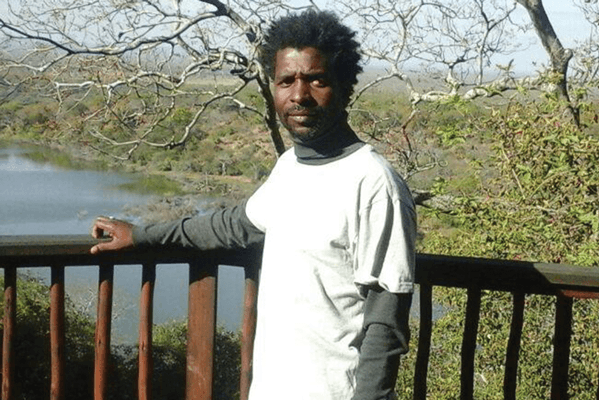
Guest Column: Paidamoyo Muzulu
CONSTRUCTION of the US$100 million six-storey new Parliament building in Mt Hampden, Harare, is well ahead of schedule, with the Chinese contractors working round the clock.
This is good news that President Emmerson Mnangagwa’s regime desperately wants, especially as the country struggles through some economic dire straits.
However, below the surface, the Chinese have set to milk the country like nobody’s business.
China has carved itself a sphere in Africa, particularly in countries that are endowed with natural resources like chrome, gold, diamonds, oil, rich farmlands and wildlife.
At the Beijing China-Africa Summit in September 2018, the Asian giant dangled US$60 billion to African countries.
This is big money compared to other foreign direct investment initiatives from the European Union and United States. However, the catch is in which countries the Chinese are investing.
South Africa leads the pack, with nearly half of the funding going into the most developed sub-Saharan African country.
- Chamisa under fire over US$120K donation
- Mavhunga puts DeMbare into Chibuku quarterfinals
- Pension funds bet on Cabora Bassa oilfields
- Councils defy govt fire tender directive
Keep Reading
Other beneficiaries are east African giants Kenya and Ethiopia, oil-rich Sudan and mineral-rich Zambia and Zimbabwe.
In Zimbabwe’s case, China has invested in Robert Gabriel Mugabe and the Victoria Falls airports, the National Defence College, the Kariba South Hydro-Electric Power Station, and State-owned communications companies NetOne and TelOne.
It has also invested in the comatose Ziscosteel, one of Africa’s biggest integrated steel company and the chrome sector.
To put the icing on the cake, on the nearly US$2,5 billion loans, China has given a US$100 million grant for the construction of a Parliament building in the new city of Mt Hampden.
Shanghai Construction Group project manager for the Zimbabwe Parliament project, Cai Li Bo, said the scheme was using 4 000 tonnes of steel and 20 000 tonnes of cement.
Said Cai: “The project shows we have good relations. There are no strings attached to the project. China is not demanding anything from Zimbabwe in return for the project. Once we finish, we will hand it over to the Government of Zimbabwe and that’s where our role ends.”
Reading between the lines, one can discern the “echoing silence” about who are the suppliers of the massive quantities of steel and cement for the project.
In all their funding agreements in Africa, one can easily notice that the Chinese supply everything or subcontract to locally-registered Chinese companies.
In this instance, Zimbabwe is only supplying manual labour at best.
China has, over the years, increased its surveillance tentacles in Africa, where it is competing for influence with the United States and some European countries, which have been on the continent for over three centuries.
China, in a coup that few saw coming, gave the African Union a US$200 million grant to construct its headquarters in Addis Ababa, Ethiopia.
A few years after its completion, in January 2018, an earthquake struck when media outlets broke the news that China had planted eavesdropping equipment at the palatial centre and on the computer networks.
I would not be cynical to say the same thing is happening in Mt Hampden, but it’s a plausible argument, considering how the Chinese have funded the military and telecommunications sector in the past decade.
If the building itself would be free from any bugs, one still has to consider that the Chinese have had a head-start in the new city.
Anjin, the same company that is mining diamonds in Marange, constructed the National Defence College and a shopping mall in the wetlands of Belvedere, and is building a five-star hotel close to the new Parliament building.
Let’s not be paranoid that this could be a listening post. Economically, that could be the reason why they donated a whooping US$100 million for the construction of the new Parliament building.
Simple logic would tell that Anjin, for 25 years at minimum, may be providing accommodation to parliamentarians and other visiting foreign delegates in the new city.
This is big business; an assured client who will cough up real money for a determined period.
Could the Chinese have one-up against the US, which built a massive US$200 million embassy village in Westgate, just a few kilometres away from the new city?
In boxing, they call it the side-ring seat and in politics, it’s like having one’s palace on a hill overlooking your enemy’s village in the valley.
Whichever way one looks at it, Zimbabwe is neck-deep into Chinese debt.
The country has mortgaged most of its mineral resources to the Chinese as collateral for the US$2,5 billion debt procured and used in strategic assets like communication, airports and energy sectors.
Overall, one can see that there is no free lunch under the sun, even from all-weather friends like China.
Zimbabwe negotiated badly in its deals and cannot withdraw now.
However, section 298 of the Constitution on principles of public financial management in 289(1)(a) clearly states: “The following principles must guide all aspects of public finance in Zimbabwe – there must be transparency and accountability in financial matters.”
It is this framework that should guide Zimbabwe’s debt contraction, with all material facts being tabled in Parliament, with the citizens in the know.
Concluding deals in the dark and far from the public eye should be a thing of the past.
If need be, opposition and civil society should litigate since Zimbabwe does not deserve a delinquent government.
Paidamoyo Muzulu is a senior Zimbabwean journalist. He writes in his personal capacity. You can send feedback on [email protected].











